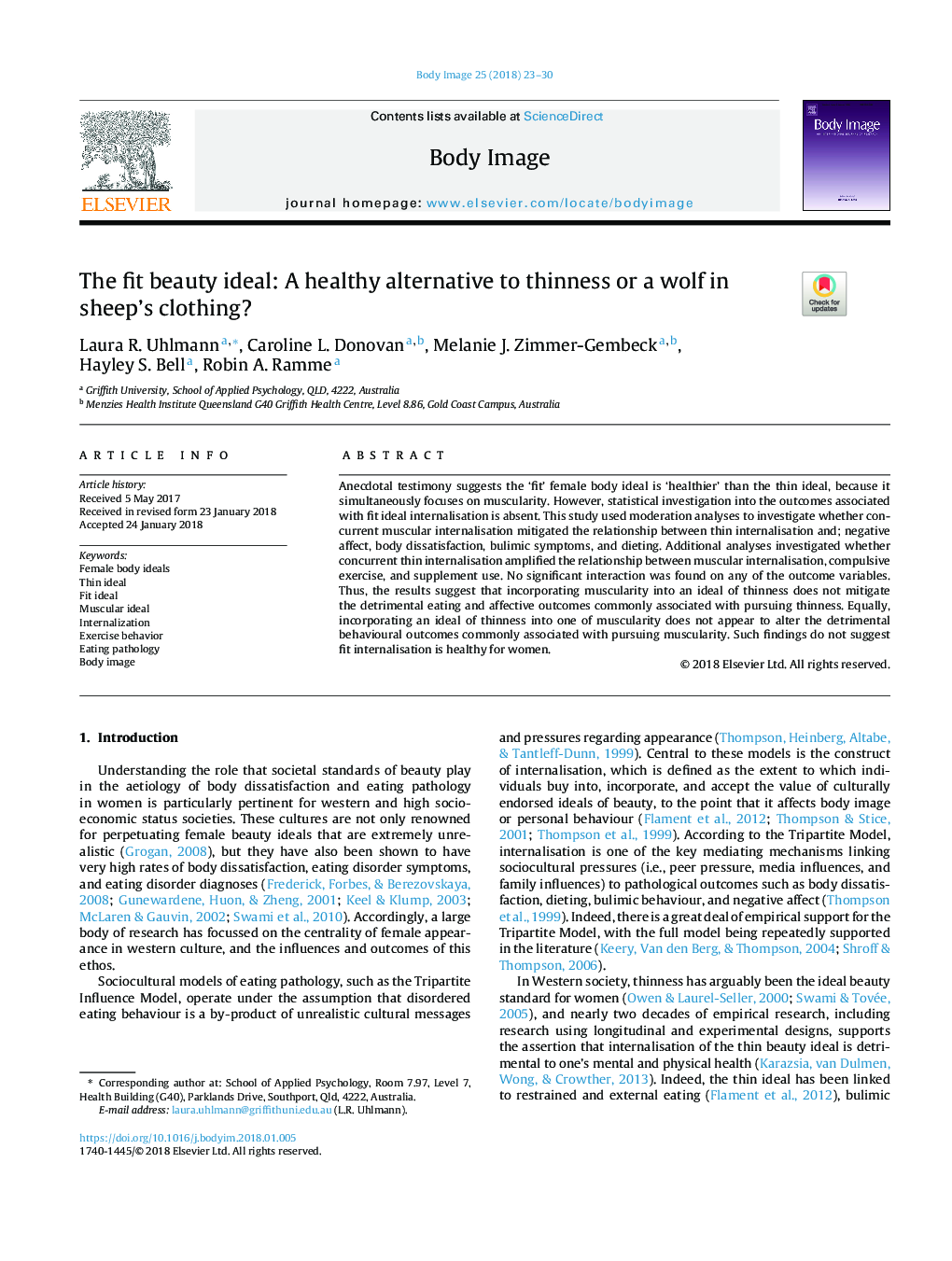| Article ID | Journal | Published Year | Pages | File Type |
|---|---|---|---|---|
| 7262994 | Body Image | 2018 | 8 Pages |
Abstract
Anecdotal testimony suggests the 'fit' female body ideal is 'healthier' than the thin ideal, because it simultaneously focuses on muscularity. However, statistical investigation into the outcomes associated with fit ideal internalisation is absent. Moderation analyses were used to investigate whether concurrent muscular internalisation mitigated the relationship between thin internalisation and; negative affect, body dissatisfaction, bulimic symptoms, and dieting. Further analyses were used to investigate whether concurrent thin internalisation amplified the relationship between muscular internalisation, compulsive exercise, and supplement use. No significant interaction was found on any of the outcome variables. Thus, the results suggest that incorporating muscularity into an ideal of thinness does not mitigate the detrimental eating and affective outcomes commonly associated with pursuing thinness. Equally, incorporating an ideal of thinness into one of muscularity does not appear to alter the detrimental behavioural outcomes commonly associated with pursuing muscularity. Such findings do not suggest fit internalisation is healthy for women.
Related Topics
Health Sciences
Medicine and Dentistry
Psychiatry and Mental Health
Authors
Laura R. Uhlmann, Caroline L. Donovan, Melanie J. Zimmer-Gembeck, Hayley S. Bell, Robin A. Ramme,
